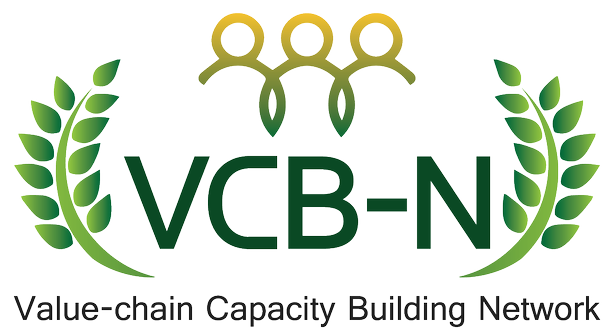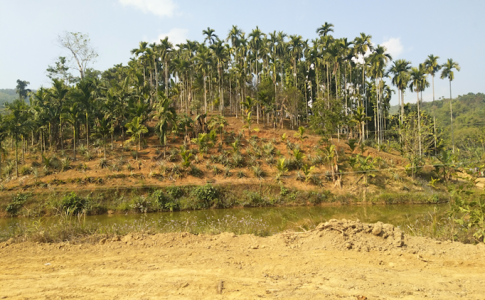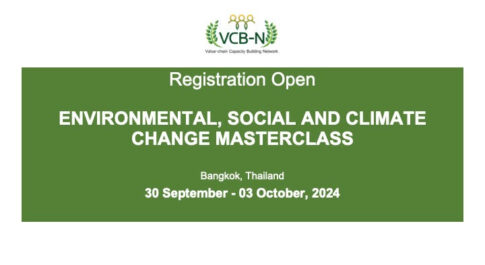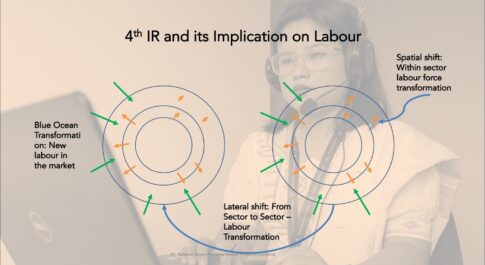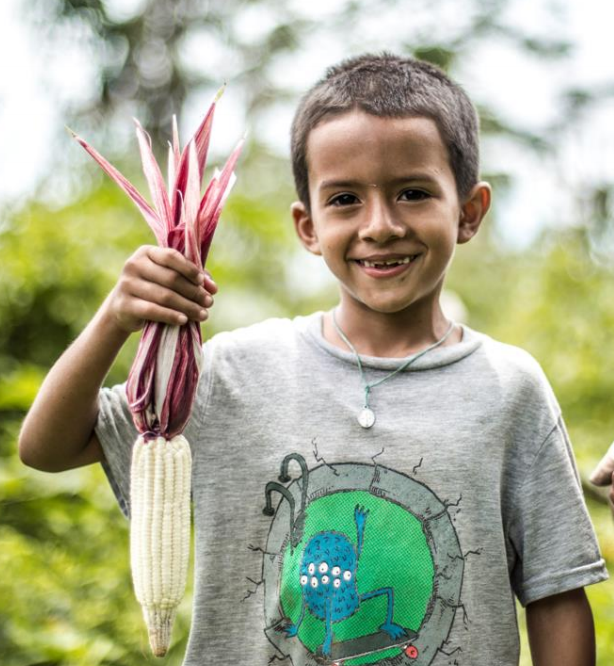
Research / event reports
Value Chain Development Related Activities implemented in China
Recommended by IFAD China Office, the CoE Team of China Agriculture University became the formal member of Value Chain Capacity Building Network (VCBN) in June 2017. In 2018, besides participating in the Annual General Meetings, the 3rdand 4thTOTs, the China Team also carried out a number of VCD related replication research and consultancy activities.
1. Agri-Value Chain Studies in Beijing Suburb

As a joint agricultural market research activities of China-German Agriculture Center (project) financed by Ministry of Agriculture and Rural Affairs, PR China and German Federal Ministry of Food and Agriculture, on 14 May, Prof. Liu Yonggong and three German Agricultural Experts carried out one-day vegetable value chain survey to Beijing Tian An Agriculture Co., LTD. located in Changping District of Beijing. The survey team interviewed Dr. Liu Yanfei, the CEO of the company with focus on the on-farm vegetable production, processing, quality traceability, marketing structures, etc. Dr. Liu Yanfei also introduced how Tian An Company established the mutual benefit sharing business partnership with farmer’s cooperatives and individual vegetable growers in the suburbs of Beijing Municipality.
On 16 May, Prof. Liu Yonggong and Dr. Gao Yang carried out an organic vegetable value chain survey to Dong’s Tianhua Organic Farm located in Fangshan District, Beijing. Dong’s Tianhua Farm is a private organic farm who rented the arable land from individual farmers in the Shangzhongyuan Village and converted the conventional production to organic vegetable production, farmers in the village benefited from the organic value chain development through employment and land lease fee. The organic products are mostly supplied to the market through special supply chain operated by the company. In addition the company also established an organic rice farm in Heilongjiang Province. The product has been already certified by EU standard as organic rice which is sold in an average price ca. 20% higher than conventional rice products .
2. Mid-Term Evaluation of Value Chain Component, IFAD Qinghai Project

As a development research and consultancy agency located within China Agricultural University, CIAD has been collaborating with IFAD in China since 1990s. The major consultancy services to IFAD project include policy studies, project designing/planning and monitoring and evaluation. Pro-poor value development, farmer’s cooperative value chain development capacity building became important components of IFAD- China Cooperation Strategy (COSOP 2015-2020).
From 2 to 14 July 2018, Prof. Liu Yonggong, China CoE of VCB-N, was commissioned by IFAD as Value Chain Development Market Access Specialist for the Mid-Term Review of IFAD Qinghai Liupan Mountain Area Poverty Reduction Project. During the mission, Prof. Liu conducted evaluation survey in 5 project counties and carried out interviews with project beneficiaries, county project officials and cooperative managers for assessing the achievements, experiences and lessons of IFAD supported value chain development and cooperative support activities. The major challenges identified by the value chain consultant include: (i) Business Management and Market Access Capacity of cooperative managers are most crucial issues for performances of the value chain development component, however, they didn’t yet receive systematic value chain development training from the project; (ii) The mechanism of benefiting small and poor individual farmers through value chain development remains as an critical issue for IFAD project; (iii) Knowledge and capacity of county project officials for assisting the small farmers and cooperatives in value chain development are still weak, capacity building on value chain needs to be provided in the remaining project years.
3. Facilitation of Agriculture Industry and Value Chain Development Planning Workshop in Tibet Autonomous Region.

Invited by the Tibet Academy of Agricultural and Animal Sciences (TAAAS), from 28 to 30 August 2018, Prof. Liu Yonggong, as value chain development planning consultant, facilitated the Tibetan Upland Agro-Value Chain Development Planning Workshop as part of preparation of planning document for“ Rural Revitalization Program ” initiated by the Tibetan Autonomous Region (TAR) Government. 55 participants representing relevant departments of the autonomous region and prefectures governments, researchers from TAAAS and Tibetan University and Tibetan Agricultural University, attended the planning workshop. During the workshop participants identified and analyzed challenges and constraints existing in crops and livestock value chain development in various regions of TAR, identified the technical and institutional priority areas to overcome these challenges and constraints. As technical inputs, Prof. Liu presented the approaches, procedures and methodologies for developing value chain and market system in the Tibetan high plateau landscape. After the planning workshop, the consultant also provided technical supports to the local team in formulating the Upland Agricultural and Animal Husbandry Value Chain Development Planning Document.
Invited by Heilongjiang Provincial Agricultural Commission, from 9 to 10 October 2018, Prof. Liu Yonggong, VCB-N China CoE, attended the International Symposium on Sustainable Rice Industry Development. In the two-day event 18 researchers and professionals from China, USA, Japan, Republic Korea, India, Thailand and Egypt delivered keynote speeches to the symposium. Prof. Liu made a keynote presentation “Considerations and Recommendations for enhancing the competiveness of rice industry in Heilongjiang Province”. Recommended value chain development strategies, approaches for improving the existing market system and strengthening the rice industry overall competitiveness in Heilongjiang Province were provided to provincial and prefecture governments. Prof. Liu also gave recommendations to improving the governmental policies and financial investment for improving the value chain and market related infrastructures.
4. Presentation on IFAD Value Chain Development Approaches and Experiences in Sichuan Province
Commissioned by the IFAD China Office, from 29 to 30 October, 2018 Prof. Liu Yonggong, VCB-N CoE of China, attended the International Symposium on Upland Agriculture and Poverty Reduction jointly sponsored by Sichuan Academy of Agricultural Sciences (SAAS) and IFAD China Office. About 200 participants, researchers from SAAS and universities, Sichuan provincial governmental departments and partners of 6 IFAD project counties who engaged in IFAD supported project “Innovative Poverty Reduction Programmes: Specialized Agribusiness Development in Sichuan and Ningxia.

On behalf of IFAD China Office, Prof. Liu Yonggong delivered an open speech and introduced missions and operational modality of IFAD in rural development and poverty reduction and IFAD contributions to Chinese poverty reduction in past 37 years. As one of 12 keynote speeches, Prof. Liu presented Achievements and Lessons of Value Chain Development Initiatives supported by IFAD China projects. Innovative features of the value chain component in the programme include linking smallholder farmers to e-commerce and supermarkets and promoting innovative benefit-sharing mechanisms between agro-enterprises and poor farmers. Prof. Liu put forward following Recommendations for pro-poor upland value chain development in Sichuan Province: (i) Criteria and steps for selecting income generating products for small farmers in the mountainous regions of Sichuan; (ii) Criteria and steps for selecting the partner cooperatives for delivering value chain development supports; (iii) capacity building and training to managers and leaders of cooperatives and governmental officials who engaged in the IFAD Sichuan Project; (iv) Expected roles and functions of governments and research institutions in implementing and facilitating the IFAD project value chain development component.
You may want to read
